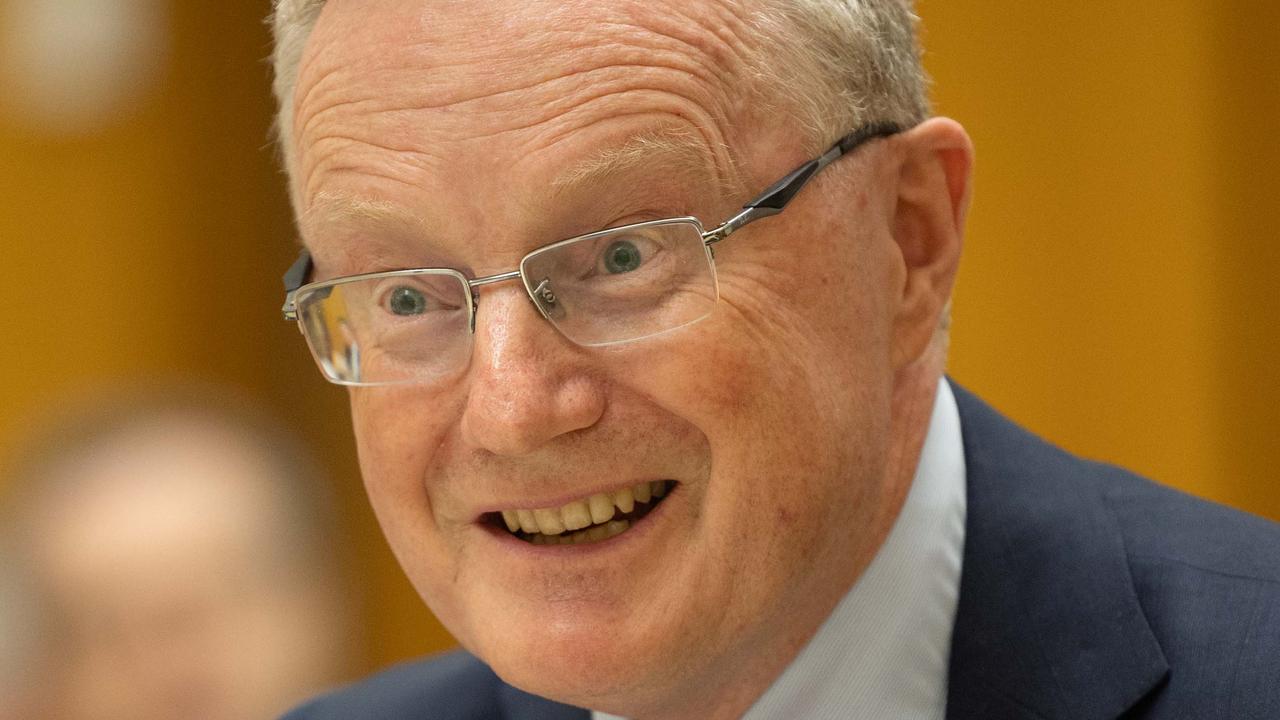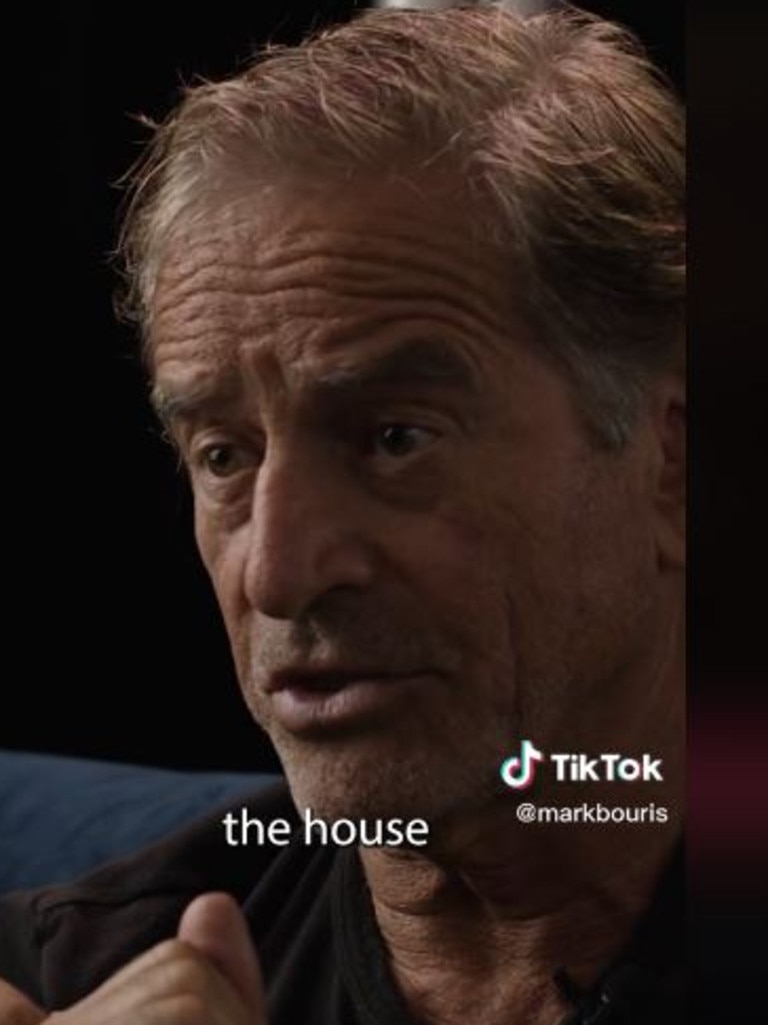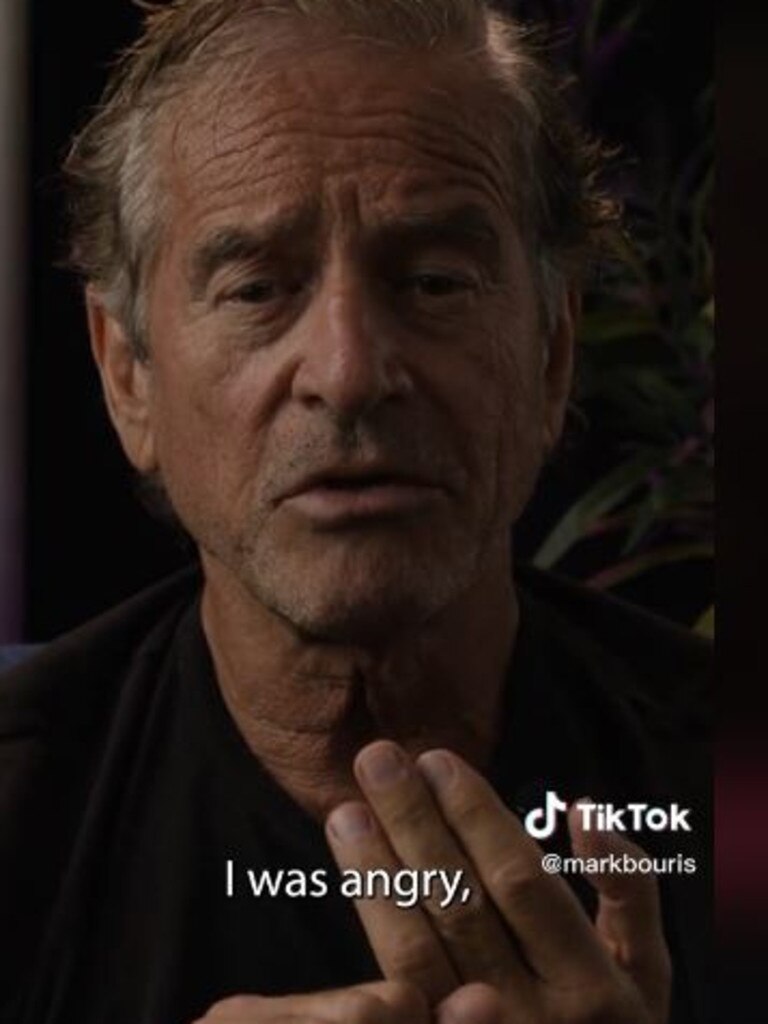‘Had to sell my house’: Legendary businessman’s shock confession as interest rates soar
Entrepreneur Mark Bouris has opened up about the awful time he was forced to sell his own home – and warned that history was repeating.

One of Australia’s leading mortgage experts has revealed he was forced to sell his own home after being crippled by skyrocketing interest rates in the 1990s – and that it was “heartbreaking” to see “history repeating itself”.
Mark Bouris, the millionaire entrepreneur and founder of Wizard Home Loans and Yellow Brick Road, recently took to TikTok to share his own harrowing story, and to invite those doing it tough to get in touch.
The former Celebrity Apprentice host began the clip by saying he had only ever witnessed one other period of brutal economic conditions similar to today’s, in 1990, when the official cash rate hit a staggering 17.5 per cent.
Just a year later, Australia was plunged into a devastating recession.

“It was 1990. I had a wife, I had four kids, and I had to sell my house,” he said.
“Telling my wife that I had to sell the house was the worst thing that I had to confront. Packing my family up was additionally really bad.
“My friends could see that I had to sell my house, and I felt embarrassed. And I have to tell you, I was really angry.
“I was angry at the time with the government, because the government jacked up rates, therefore the banks jacked up rates as well, and I was forced to sell.”
He continued by adding that: “This stuff happens, and it happens in cycles, but the last time it happened was in 1990, and it happened to someone like me”.
“I know you will recover. If you have to sell, you have to sell.
“Don’t worry about it, your family, your partners, your friends, they’ll understand, don’t feel embarrassed.”


He finished by inviting anyone who was “confronting this position right now” to reach out, and provided his own email.
Days later, he followed it up with an Instagram video, revealing he had been inundated with responses that “actually breaks my heart to be frank”.
“I’ve got to be honest with you I didn’t anticipate the response,” he wrote in the caption.
“I knew it’d be big but woah.
“All these messages just highlight the failure of the government and RBA.”
In the second video, he said each email he had received “has its own set of difficulties and its own set of circumstances” and that “a lot of it is not necessarily to do with just interest rates rising, but it’s more what happens when interest rates rise given your other circumstances – they might have sickness in the family, death in the family, the businesses are doing poorly … or there’s just some things like domestic violence have been a big, big factor in all of these”.
He revealed he was struggling to keep up with the emails, but promised he did “give a damn” and that he would do what he could to help out.
Mr Bouris’ grim warning comes as the Reserve Bank jacked up Australia’s official cash rate by 25 basis points once again this month – its ninth consecutive rate hike – increasing the baseline rate to 3.35 per cent.

Financial markets now expect the cash rate to hit 4.1 per cent by August, with AMP chief economist Shane Oliver recently claiming it was possible further rate hikes could plunge the economy into recession.
RBA boss grilled
It comes as RBA Governor Philip Lowe this weeks faced a Senate Estimates grilling over Australia’s current interest rates disaster, telling attendees he felt for those doing it “really tough”, and insisting the RBA was there to “help people”.
He argued that the RBA was pursuing the lesser of two evils in an attempt to curb the nation’s inflation problem.
“We want to get inflation down because it’s dangerous,” he said.
“It’s corrosive. It hurts people. It damages income inequality and if it stays high it leads to higher interest rates and more unemployment.”
The House of Representatives Standing Committee on Economics will hold a public hearing with Mr Lowe and other senior RBA officials on Friday.
Committee chair Dr Daniel Mulino MP said that “right now, inflation is the primary challenge to Australia’s economy, with the latest CPI inflation figures reaching 7.8 per cent over the year to the December quarter”.
“This sharp increase in rates, unprecedented in recent times, has been creating pressure across households and the economy,” he said.
“While the RBA’s view is that inflation is likely to have peaked around the end of 2022, there is still considerable uncertainty in the economic outlook with further interest rate increases expected in the months ahead.
“The committee takes its scrutiny of the RBA very seriously and will continue to examine how the challenges of tackling high inflation are evolving.”






